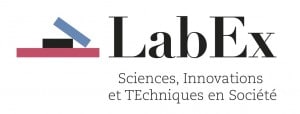Abstract
The recent years have seen a surge of initiatives with the goal of defining what “ethical” artificial intelligence would or should entail, resulting in the publication of various charters and manifestos discussing AI ethics; these documents originate from academia, AI industry companies, non-profits, regulatory institutions, and the civil society. The contents of such documents vary wildly, from short, vague position statements to verbatims of democratic debates or impact assessment studies. As such, they are a marker of the social world of artificial intelligence, outlining the tenets of different actors, the consensus and dissensus on important goals, and so on.
Multiple meta-analyses have focused on qualitatively identifying recurring themes in these documents, highlighting the high polysemy of themes such as transparency or trust, among others. The broad term of “AI ethics” and its guiding principles hide multiple disparities, shaped by our collective imaginations, economic and regulatory incentives, and the pre-existing social and structural power asymmetries; through quantitative analyses, we validate and infirm previous qualitative results.
In this paper, we create and present a corpus of charters and manifestos discussing AI ethics through the process of collection and its quantitative analysis using text analysis to shed light on common and distinct vocabularies. Through frequency analysis, hierarchical topic clustering and semantic graph modelling, we show that the charters and manifestos discuss AI ethics along three broad axes: technical documents, regulatory ones, and innovation and business ones. We use our quantitative analysis to back up and nuance previous qualitative results, showing how some themes remain specific while others have fully permeated the space of AI ethics. We document and release our corpus, comprising of 436 documents, charters and manifestos discussing AI ethics. We release the corpus, its datasheet and our analysis, to open the way to further studies and discussions around vocabulary, principles and their evolution, as well as interactions among actors of AI ethics, in order to foster further studies on the topic.
See all documents refering Cortext Manager






